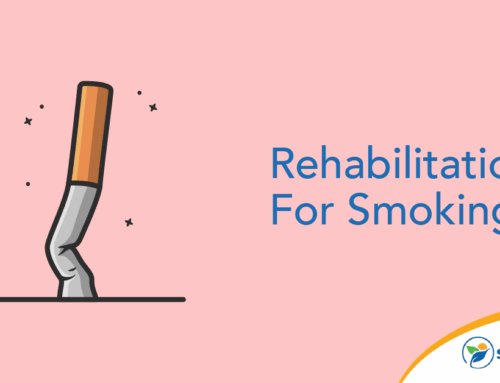People in recovery face special challenges at the doctor’s office. If you have a history of painkiller abuse or addiction, as more than 52 million Americans do, what should be the safe place of a medical clinic or hospital can become the gateway to relapse. While medical providers in the United States are prescribing painkillers about 44% less than they used to, a person in recovery still has to communicate effectively with medical providers to ensure they get an addiction-sensitive treatment plan that helps maintain sobriety. To do that for yourself or for a loved one who depends on you, you have to learn how to advocate for patients, including yourself.
Building a Collaborative Relationship With Medical Providers
The key to getting good results from your medical care is to build a solid relationship with your providers. A good working relationship between patients and providers has to be built on empathy and trust, where both parties are open and honest with each other about matters important to health. This starts with a clear understanding of each person’s role in the relationship and the creation of healthy boundaries, which can be difficult for people who are still early in their recovery. Your doctor’s role is to ask relevant questions of you, investigate your health issues and provide you with accurate, complete information you can use to make informed decisions about your care. Your role is to openly and honestly communicate with your provider about your health, history and goals for treatment.
This relationship starts even before your first appointment. When you call to schedule a visit at the clinic or hospital, tell the person you’re talking to about any special concerns you have. If you fill out a pre-appointment questionnaire, be honest about your history of addiction. Doctors are ethically bound to keep your information private, and knowing you have a history with opiates will inform the treatment options you’re presented with in the future. This is also a good time to reveal any trauma history you have because medical providers can alter their approach to provide trauma-informed care.
Effective Communication Strategies for Advocacy
Once you meet with your doctor, it’s a good idea to go over your history in person. Doctors generally look over their patients’ medical and social histories prior to meeting with them, but they’re still people and mistakes happen. Especially in the early days of your relationship with a new provider, it’s helpful to make sure they know about your addiction and treatment history, where you’re at in sobriety and whether you have any special concerns, such as relapse due to opiate use.
Sometimes, you can’t communicate with a health provider. If you lose consciousness or are too sick or badly injured to manage your own care, your trauma team may not know about your special medical concerns. Getting a medical alert or personal history bracelet can be extremely helpful here. First responders and emergency department workers are trained to look for documentation like this, which can reveal necessary information about your history, preexisting medical conditions and advance directives, such as if you have a DNR order or a request to avoid certain procedures or treatments. This is also a helpful way to let providers know about any allergies you may have or whether you have a personal objection to certain treatments, such as a religious objection to blood transfusions.
Discussing Treatment Options and Goals
Assuming you’re fully conscious and engaging normally with your provider, you’ll be able to share detailed information and collaborate on setting your health care goals. Your doctor plays the role of an advisor and consultant here by telling you what options you have for treatment and by sharing a realistic idea about your rehabilitation potential. They can give you a diagnosis of what’s wrong, lay out treatment options for you and help you set achievable goals for recovery.
The information you get from your providers has to be informed by the information you share with them. If relapse is a special concern for you, your doctor should consider that and modify your pain relief plan to include more non-drug approaches. They might modify the established treatment protocols to offer you a lower dose of pain relief, switch to a different family of analgesics or seek other therapy options that help you maintain sobriety while still getting the treatment you need.
Seeking Second Opinions and Self-Advocacy in Medical Decisions
Every patient has the right to honest, unbiased information about the state of their health — and to the doctor’s best-informed assessment of treatment options and outlook for success. You also have the right to a second opinion because much of medicine is subjective, and a different provider could reasonably disagree with your first doctor about almost anything, from the basic diagnosis to the preferred treatment plan to even your prospects for a full recovery.
Insurance plans generally cover second opinions, and it’s part of health care culture in the United States that patients will sometimes seek confirmation in this way. That’s why it’s generally okay to bring this idea up with your primary care provider and even to ask for a referral for a second opinion. Your doctor shouldn’t take it personally or treat your request as anything other than a normal proactive patient advocacy example.
Depending on your condition and medical history, you might face a situation where your doctor insists that a certain treatment plan is either the only option or the single best way to reach your treatment goals. While the doctor is the expert in medicine, you’re the expert in your own goals and capabilities. You’re the director of your own treatment, and you have the final say in what gets done and what doesn’t, even if it goes against medical advice. Don’t be afraid to exercise that power when making treatment decisions, and remember that you’re your own best advocate, no matter what stage of recovery you’re in.
How to Advocate for a Patient in Recovery
Getting the help you need to get sober and the confidence to successfully advocate for your own interests starts with the compassionate professionals at Sunlight Recovery. Call us today to consult about your use history and start the road to recovery today.







